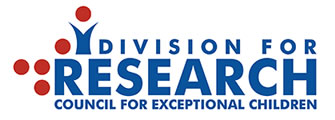
These days, being a parent/caregiver often means you are stretched too thin, overworked, and sleep deprived. Parents are often expected to juggle it all and place the needs of the family above their own. Many parents feel burned out, exhausted, and overwhelmed.
A recent study of caregiver burnout in 42 countries found that parents in the USA and Canada reported the highest rates of burnout around the world. Up to 8% of parents in the USA and 7% of parents in Canada reported burnout that was causing problems in their daily functioning and relationships with their children. Burnout has gotten worse since the start of the COVID-19 pandemic. Parents have all the same burdens they had before the pandemic, and are managing more stressors, like inconsistent access to childcare.
What is Burnout?
Caregiver burnout is an overwhelming feeling of exhaustion related to one’s caregiving role, an emotional distancing from one’s children, and a sense of parental ineffectiveness. Caregiver burnout is not ordinary parenting stress. It is also not the same as workplace burnout. Parents are at risk of becoming burned out when they have more stressors than coping resources. When a parent does not have the strategies needed for coping with caregiving stressors, they will most likely experience burnout.
Parents experience both acute stressors and chronic stressors. Acute stressors can include tantrums, whining, complaining, and sibling conflicts. Chronic stressors may include coping with a child’s chronic medical or mental health condition, mental illness, single parenting, food insecurity, and poverty. Any parent can experience burnout, but parents with chronic stressors are the most vulnerable. Burnout severity depends on how much support parents receive from their social networks, family, and partners. Caregiver burnout can impact a parent’s wellbeing and relationships when it is not addressed.
What are some common signs and symptoms of burnout?
There are four core signs of parenting burnout:
- Overwhelming exhaustion
- Feeling tired when you wake up
- Experiencing fatigue
- Feeling emotionally drained
- Running on an empty tank
- Emotional detachment
- Becoming less involved in caregiving
- Feeling disconnected or doubtful about caregiving abilities
- Limiting interactions with your children
- Feeling withdrawn and not present
- Lacking a sense of accomplishment and pleasure in the parental role
- Feeling fed up or frustrated with caregiving
- Not enjoying being with your children as much
- Not enjoying being a caregiver anymore
- Change in behavior and emotions
- Experiencing big emotions such as anger
How to cope with burnout.
Burnout is not always in your control, which can make you feel helpless as a caregiver. If you think you’re experiencing burnout or want to prevent burnout, try the following strategies:
- Allow yourself to sometimes feel mad, sad, frustrated, and disappointed. These feelings are best felt in a limited period, such as when taking a shower or speaking to a friend. By letting these emotions be present, you can more quickly find the accomplishment, and laughter.
- Set regular check-ins. Take a few minutes each week to think about what went well and what you wished would have gone better. Taking time to highlight what is going well helps to give you confidence and reminds you to think about the positives. You can then make a plan to address the areas you wish could be going better. Try journaling these feelings or sharing with someone you trust.
- Be kind to yourself. Giving yourself compassion can help you cope with difficult emotions or tough situations. Begin by mindfully recognizing that you are not alone in the difficulty of parenting, the painful feelings, and the mistakes made along the way. Then, pause and take a moment to talk to yourself like you would to someone you love or a good friend. Try reframing your thoughts (Instead of “I have to do it all or else I am a failure”, try “I know that I am always enough. I will try my best, but if I can’t, it’s okay”) or practicing loving kindness (for example saying “May I treat myself with kindness in tough times. May I find strength; may I be patient. May I forgive myself for my mistakes.”).
- Know your social support. Some of our friends are great for empathy, support, and distracting with humor. Seek out the right friends for the right situations. When you are very busy, find smaller ways to connect. This could include sending funny memes or playing phone games virtually.
- Take Five. Although it can feel selfish to do something for you, having an activity or an accomplishment (that isn’t the dishes!) can go a long way. Five extra minutes of sleep doesn’t make us feel as good as five minutes of stretching, calling a friend, or reading a book.
- Create small routines. Caregiving can be chaotic, and the days often do not look alike. Finding small things that can be the same each day can be very grounding. For example, coffee and the same morning music, mealtimes being at the same time, or a regular TV show break. Weekly events can also promote feeling more grounded and mindful during family time (for example, Monday is laundry, Fridays is movie night).
- Set healthy boundaries. Healthy boundaries help you to protect your energy and keep a positive emotional connection to your children. If you find yourself endlessly giving to others but having nothing left to give yourself, take a step back and re-evaluate. Setting boundaries may mean communicating reasonable limits and identifying where in your life you could be sharing the workload. Eating well, having restful sleep, and physical movement throughout the day can be helpful.
- Check your social media use. Social media has many benefits in the caregiving world. It can be a place to connect, find empathy and validation, and learn new strategies or tricks. Studies find that engaging with friends on social media does promote happiness. BUT, if you find yourself mindlessly scrolling on social media, comparing yourself to others, or checking social media constantly, this can lead to feeling worse.
- Consider mental health support. Great, accomplished, and loving parents still need someone in their corner. Seeking mental health support does not mean you are a bad parent. Instead, it is evidence that you are working on being your best self for your children. Talk to your primary care physician if you are considering psychotherapy or medication.
Take Home Message
For more information and some examples of resources for managing symptoms of caregiver burnout, please visit:
Courageous Parents Network
https://courageousparentsnetwork.org/topics/taking-care-of-yourself
The Family Caregiver Alliance
https://www.caregiver.org/taking-care-you-self-care-family-caregivers
The Mighty
https://themighty.com/#communities
BC Children’s Hospital/Kelty Mental Health
https://keltymentalhealth.ca/podcast/present-matters-mindfulness-and-mental-well-being
https://keltymentalhealth.ca/search?text=mindfulness
Care for Caregivers Project
https://www.garrisoninstitute.org/care-for-caregivers/
Self-compassion
https://self-compassion.org/wp-content/uploads/2019/03/Self-Compassion-for-Parents-Greater-Good.pdf
https://self-compassion.org/category/exercises/#exercises
https://self-compassion.org/self-compassion-test/
Tamana, S. K., Bakula, D., & Dempster, N. (April 02, 2022). Signs of caregiver burnout, what to do about it, and how to overcome? https://infoaboutkids.org/blog/signs-of-caregiver-burnout-what-to-do-about-it-and-how-to-overcome-it/
















